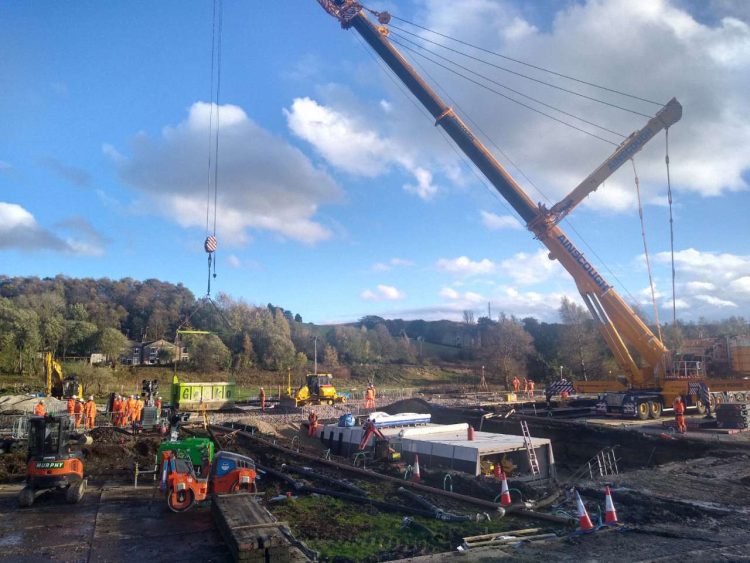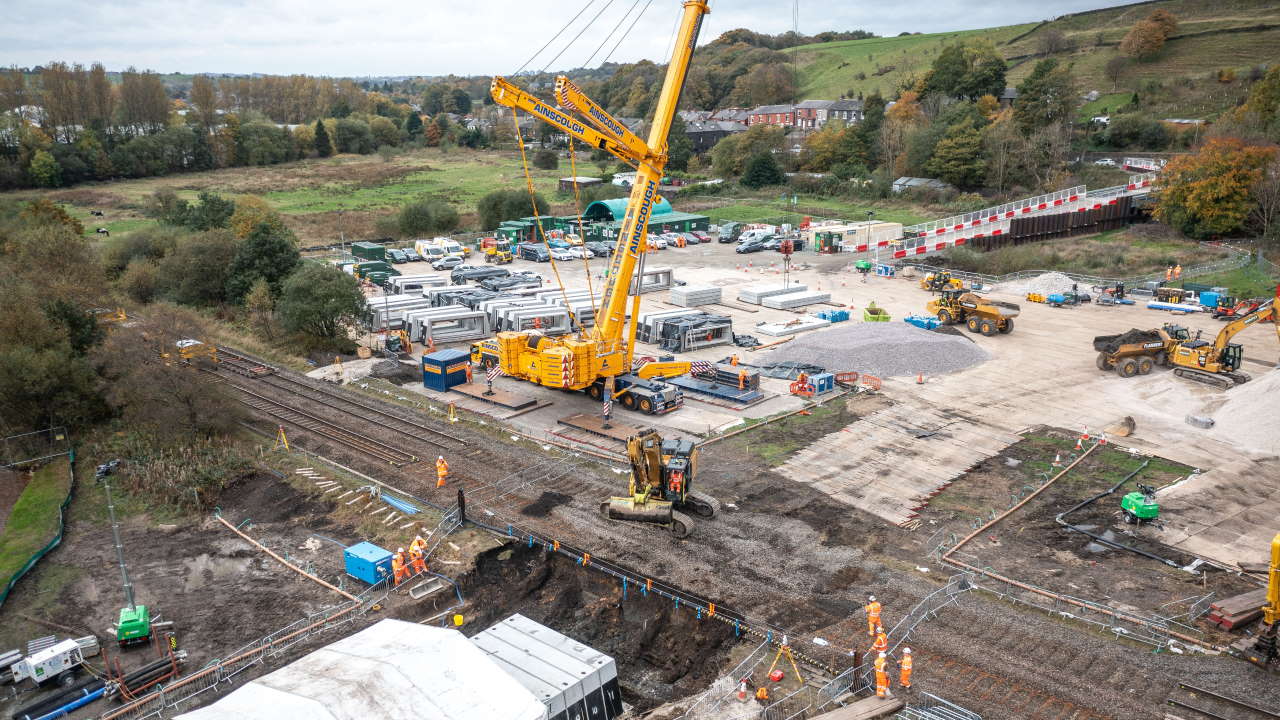Major work has been carried out to protect the Calder Valley line and surrounding communities from the risk of flooding, and Network Rail has now released a time-lapse video of the work.
Network Rail joined forces with the Environment Agency at Littleborough near Rochdale to build a new culvert to drain water from underneath the line whenever the River Roach bursts its banks.
The new culvert will direct water away from the line, preventing damage to communities or causing travel disruption.
That happened during Storm Frank on Boxing Day in 2015, resulting in homes and roads being swamped.
The Calder Valley line was closed for nine days last month. During that time, the railway track was ripped up, and the embankment excavated, so that a precast concrete drainage system could be lifted in by crane.
The time-lapse video shows the enormity of the project to build the culvert, and to relay the track in time for trains to run again.
Emma Gray, scheme project manager for Network Rail, said: “Flooding in the Calder Valley can cause huge disruption to people’s lives, risking not only the railway but people’s property and livelihoods.
“Working together with the Environment Agency is hugely important to make sure projects like this can protect us all from more frequent and extreme weather events. We thank passengers for their patience while the railway was closed for this essential work to be carried out.”
Ben Scott, area flood and coastal risk manager for the Environment Agency, said: “It is always immensely satisfying to see flood risk management schemes start to progress. This £56m project is incredibly important to residents of Rochdale and Littleborough who live with the very real worry of homes and business premises being flooded.
“This is a complex scheme, which has taken time to design, and strong relationships have been developed with a range of key partners. Once completed, the project will be one of the biggest flood alleviation schemes in the north of England. It will protect people, property and key infrastructure such as the railway line, which is the life blood of the community, from the risk of flooding as well as enhancing the natural environment.”

During the culvert installation:
- 35 metres of track was temporarily removed;
- 2,000 tonnes of spoil was excavated;
- 16 base slabs and 39 culvert units, each weighing 24 tonnes, were installed.
To minimise disruption to passengers, the scheme was done at the same time as work to replace track inside the nearby Summit Tunnel at the end of October.
This flood protection scheme is part of Network Rail’s commitment to run a safe, green and reliable railway, which invests tens of millions of pounds each year to make the railway more resilient to changing weather patterns as a result of climate change.
Where Next on RailAdvent?
Railway News
DVDs, Prints, Cards and Gifts
MAINLINE STEAM INFO
Competition Time!
Share your pictures
FREE NEWSLETTERS
Subscribe for More






Responses
Littleborough floods were a direct result of having developed the flood plain for new housing, no doubt this project will facilitate the continued development of even more green space.